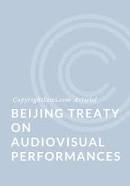Indonesia has ratified the Beijing Treaty and the Marrakech Treaty, two multilateral copyright agreements. The Beijing Treaty covers audio-visual performances, especially reproduction, distribution and rental of these copyright works. The Marrakech Treaty allows the reproduction and transfer of specially-adapted products the visually or impaired (apparently over 3.5 million people in Indonesia) by establishing a set of limitations and exceptions to copyright law.
More specifically the Beijing Treaty protects performers by granting 4 rights: (i) the right of reproduction (direct or indirect) of the fixation of their audio-visual performance; (ii) the right of distribution of copies of the fixation of their audio-visual performance; (iii) the right commercial rental of copies to the public; and (iv) the right of making available to the public, which nowadays relates more to wireless (or wire) internet access including streaming and downloads.
There are also rights over unfixed live performances - the right to broadcast, communicate to the public (apart from broadcasts, i.e. online) and the right of fixation. The Treaty also give performers moral rights, including the right be identified as the performer and the right to object to distortion, mutilation or prejudicial modification. There are rules on transferring rights to producers, incorporation of the Three Step Test for exceptions and limitations purposes well as remedies against circumvention of technological measures (e.g. encryption) used by performers.
Indonesia has a vibrant creative economy and performers struggle to get fairly paid. Indonesia is the thirtieth country to ratify the Beijing Treaty, fulfilling the minimum requirement for it to come into force in April (despite the EU and US not having agreed to it).
Both Treaties operate under the World Intellectual Property Organization (WIPO). Indonesia will therefore need to amend its copyright law to give effect to these.
